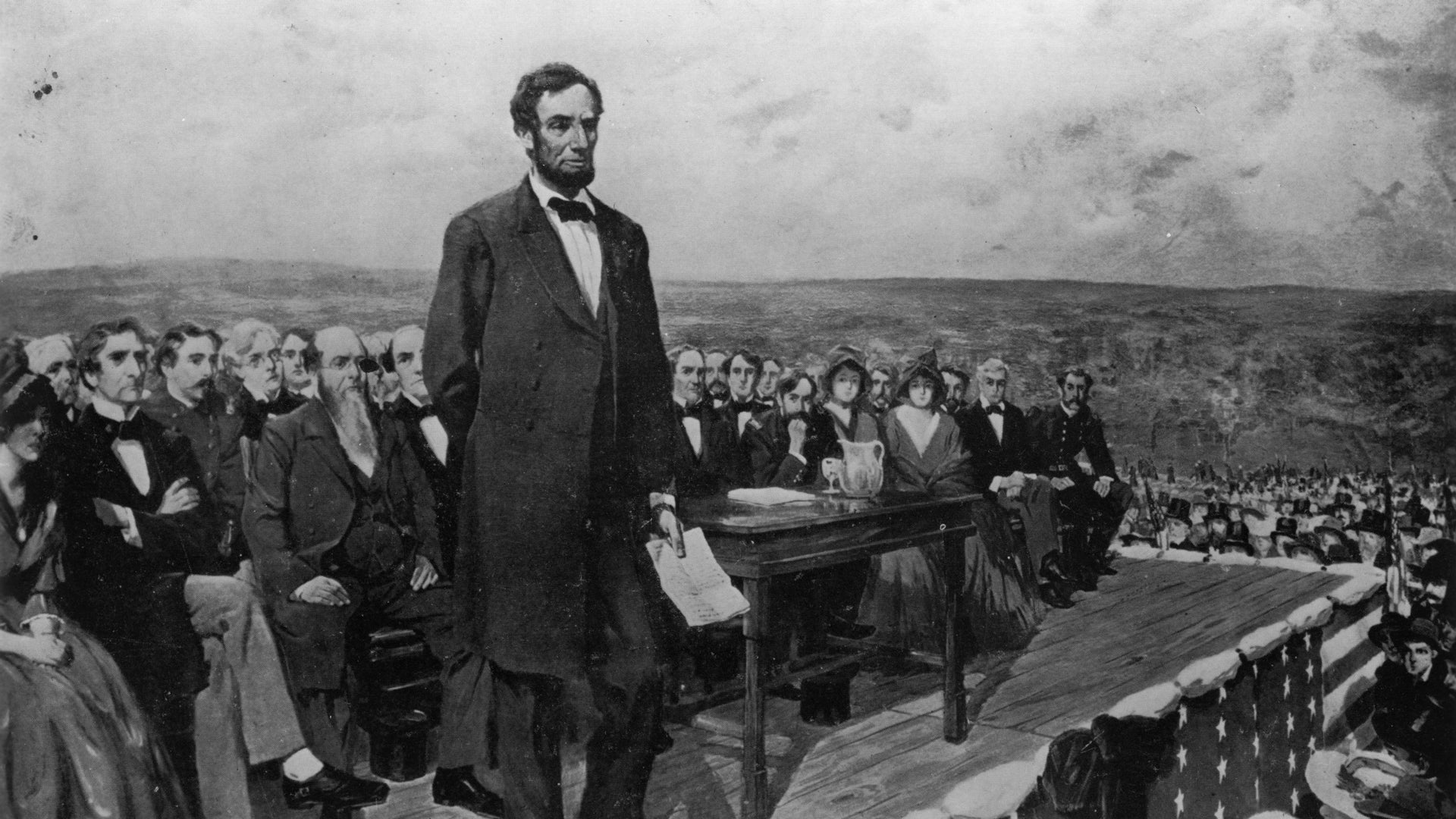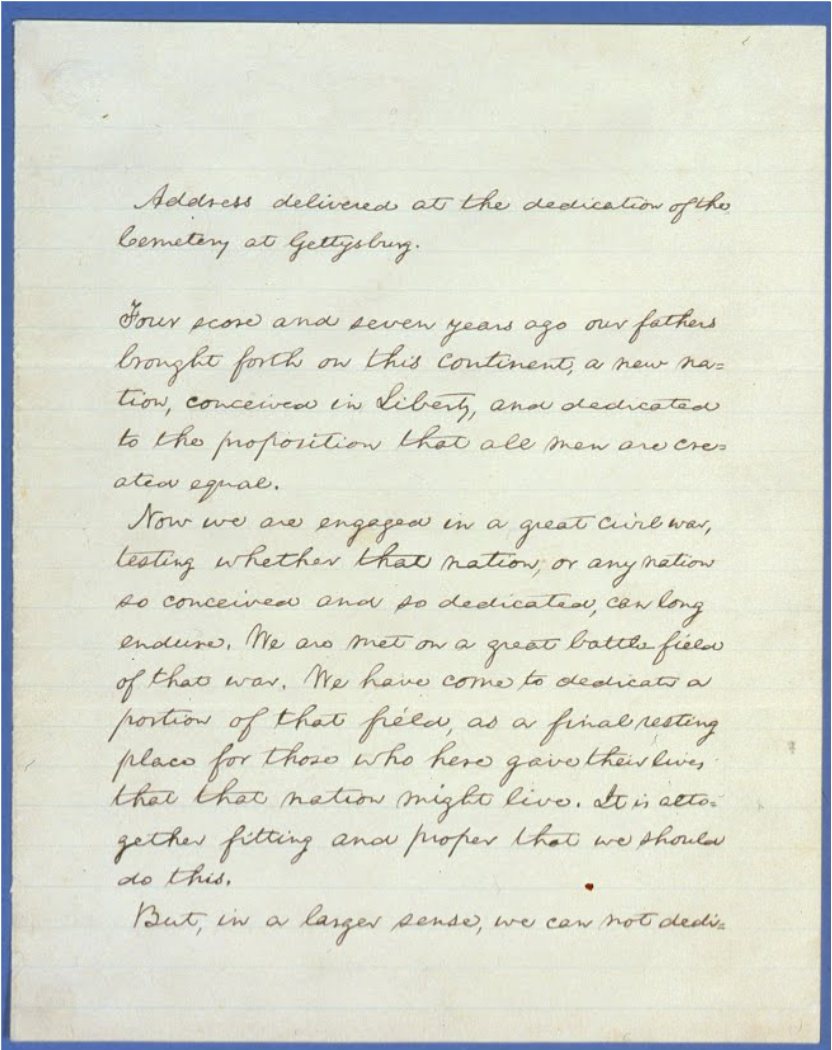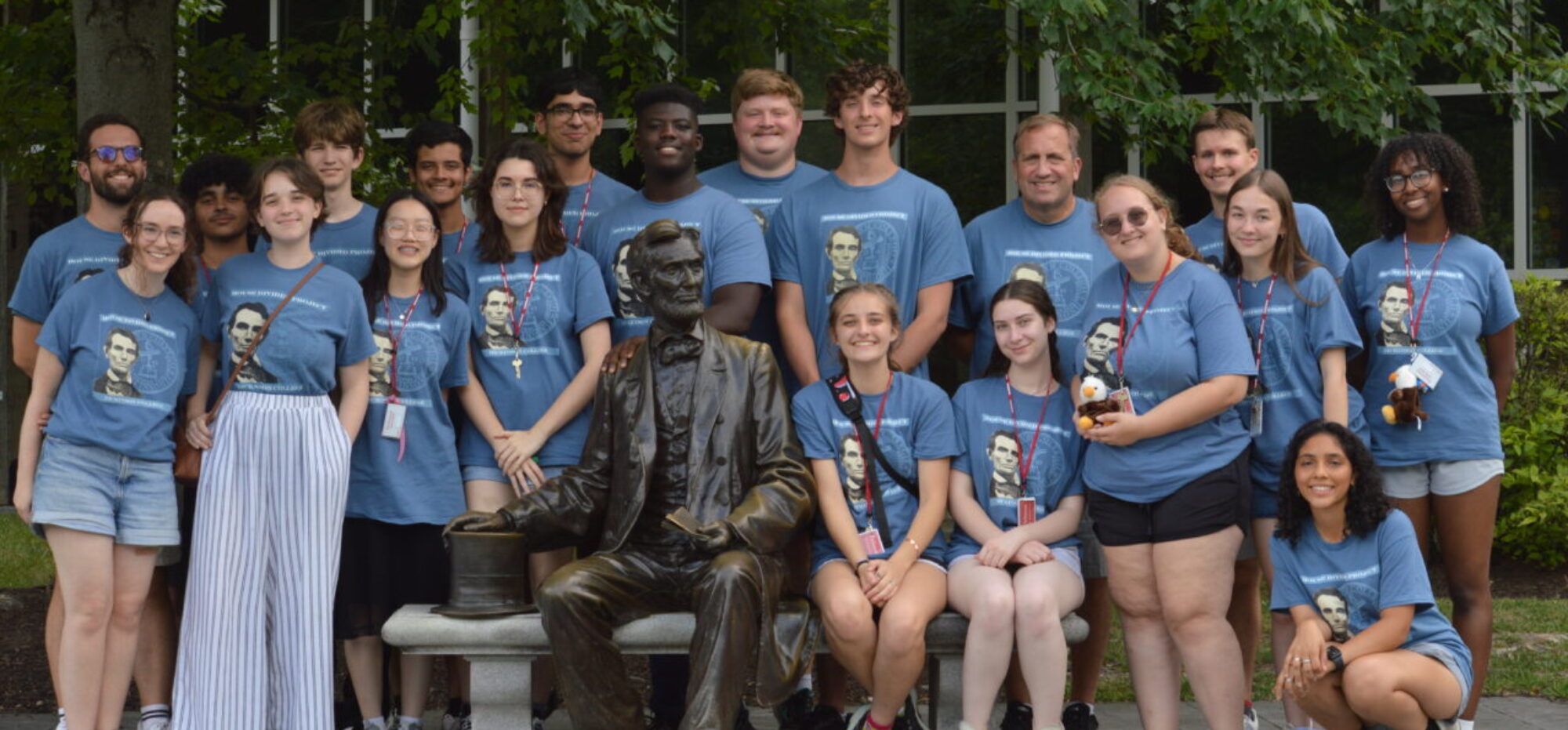…we here highly resolve that these dead shall not have died in vain—that this nation, under God, shall have a new birth of freedom—and that government of the people, by the people, for the people, shall not perish from the earth.
INTRODUCTION
On July 7, 1863, in the immediate aftermath of the news reaching Washington DC that Union forces had not only won a major battle at Gettysburg, Pennsylvania, but also had prevailed in a long bloody, siege at Vicksburg, Mississippi, President Abraham Lincoln responded to a “serenade” from a crowd outside the White House with an impromptu speech. Near the beginning of his brief remarks, Lincoln observed, “How long ago was it –eighty-odd years– since on the Fourth of July for the first time in the history of the world a nation by its representatives, assembled and declared as a self-evident truth that ‘all men are created equal.” Of course, while the president did not know it then, this passage represented the first draft of the famous, far more poetic, opening of his address delivered at the dedication of the Soldiers’ National Cemetery at Gettysburg on November 19, 1863.

Lincoln’s Gettysburg Address was short –a mere ten sentences– but it has become the most famous speech in American history. There are many ways to interpret its meaning, but one of the most powerful insights concerns how Lincoln subtly worked to evoke memories in his audience. He did not name individuals or policies, but instead Lincoln used the language of American politics, culture, and religious faith to help inspire his listeners and readers. Such writing, of course, requires careful composition and revision. The version below, for example, was not merely the second draft of Lincoln’s response to the July serenade. This famous text, which now adorns the Lincoln Memorial, actually comes from a version that Lincoln hand-wrote in March 1864. It was not that much different than the version that he had delivered in November 1863, but the small differences reflect the brilliance of a writer who knew that every word mattered.
SOURCE FORMAT: Public speech
WORD COUNT: 272 words
Excerpt from the Gettysburg Address read and produced by Caroline Eagleton, ’23
Excerpt from the Gettysburg Address, read by Chinue Kinsale (Teagle 2021) with music by WeVideo: “Romantic Journey”
Abraham Lincoln, Address at the Dedication of the Soldiers National Cemetery, Gettysburg, PA, November 19, 1863

Four score and seven years ago our fathers brought forth, upon this continent, a new nation, conceived in Liberty, and dedicated to the proposition that all men are created equal.
Now we are engaged in a great civil war, testing whether that nation, or any nation so conceived, and so dedicated, can long endure. We are met on a great battle-field of that war. We have come to dedicate a portion of that field, as a final resting-place for those who here gave their lives, that that nation might live. It is altogether fitting and proper that we should do this.
But, in a larger sense, we can not dedicate, we can not consecrate—we can not hallow—this ground. The brave men, living and dead, who struggled here, have consecrated it far above our poor power to add or detract. The world will little note, nor long remember what we say here, but it can never forget what they did here.
It is for us, the living, rather, to be dedicated here to the unfinished work which they who fought here, have, thus far, so nobly advanced. It is rather for us to be here dedicated to the great task remaining before us—that from these honored dead we take increased devotion to that cause for which they here gave the last full measure of devotion—that we here highly resolve that these dead shall not have died in vain—that this nation, under God, shall have a new birth of freedom—and that government of the people, by the people, for the people, shall not perish from the earth.
CITATION: Abraham Lincoln, Address at Soldiers’ National Cemetery, Gettysburg, PA, November 19, 1863 [BLISS COPY / FINAL TEXT], FULL TEXT via Collected Works of Abraham Lincoln (1953)
DISCUSSION QUESTIONS
- In this address, Lincoln chose not to mention specific heroes, policies, or events. Instead, he offered a series of powerful but mostly abstract images and references. Why might he have done that?
- There were thousands of people at the cemetery dedication in Gettysburg, but Lincoln was surely thinking of a larger reading audience for his words. Who do you think he was trying to reach with these particular remarks?
- People continue to find inspiration in the Gettysburg Address. It has become perhaps the most famous speech in American history. Does it seem to offer any special resonance for our challenges today?
FURTHER READING
In choosing a battlefield, Gettysburg, to reassert the highest ideals of the Union, Lincoln could make no starker demonstration of the intermingled fates of slavery and the war. – James Oakes p. 219
Prof. Pinsker’s close reading video on the Gettysburg Address
- FEATURED COLLECTION: Lincoln’s Gettysburg Addresses (House Divided Project)
- James L. Huston, “The Lost Cause of the North: A Reflection on Lincoln’s Gettysburg Address and the Second Inaugural,” Journal of the Abraham Lincoln Association 33 (Winter 2012)
- James Oakes, The Radical and the Republican (2007), pp. 217-225
- STUDENT CLOSE READING: TBD
- Handout –Story of Sam and Bayard Wilkeson
- Handout –Gettysburg Revisions
